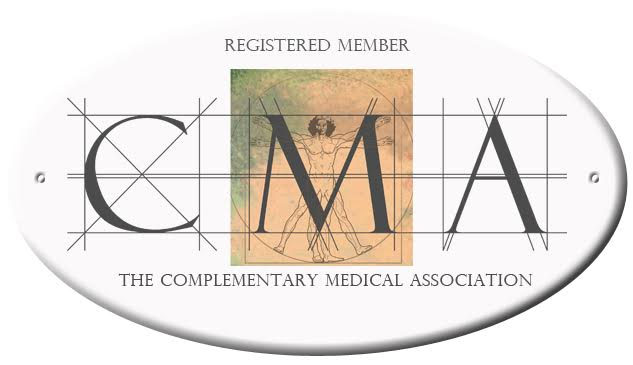Introduction
“Our Gut Microbiome is like a rainforest: it needs diversity to thrive.” – Dr. Will Bulsiewicz
The human gut is home to a vast ecosystem of microorganisms that play a crucial role in our health, known as the Gut Microbiome. And this Gut Microbiome consists of over one hundred trillion bacteria, viruses, and fungi that work symbiotically with our bodies to support digestion, immune function, and even brain function, and emotional and mental health. In this post, we explore the gut microbiome, its essential functions, the benefits of maintaining a healthy microbiome, common disruptors, and practical steps to support a thriving gut environment.

Understanding the Gut Microbiome
Definition:
- The gut microbiome refers to the diverse community of microorganisms living in our digestive tract. This complex ecosystem includes bacteria, viruses, fungi, and other microbes that collectively weigh about 1 kilogram in an average adult.
- Did You Know . . . there are more microbes in the Gut Microbiome than stars in the Milky Way Galaxy!!

Functions of the Gut Microbiome
Digestive Functions:
- The gut microbiome aids in the digestion of food and the absorption of nutrients, and the removal of toxins. Certain bacteria help break down complex carbohydrates and fibers that our bodies cannot digest on their own, nourishing the colon.
Immune System Support:
- The gut microbiome plays a critical role in training and regulating the immune system.
- Did you Know: 70% of our Immune System resides in the gut!
Mental Health and the Gut-Brain Axis:
- The gut and the brain are connected through the gut-brain axis, a communication network that links the central nervous system and the gastrointestinal tract. The microbiome influences the production of neurotransmitters like serotonin, which can affect mood, anxiety, and stress levels.
- Did you Know: The Gut Microbiome has the potential to produce more serotonin than the brain!
Benefits of a Healthy Gut Microbiome
Physical Health:
- A balanced gut microbiome improves digestion, enhances immune function, and reduces inflammation. It also plays a crucial role in preventing chronic diseases such as obesity, diabetes, heart disease, Alzheimer’s, autoimmune disorders and more
Mental Health:
- A healthy microbiome can reduce symptoms of anxiety and depression, improve mood, and enhance cognitive function. By influencing the gut-brain axis, it helps maintain mental well-being.
Overall Well-being:
- Maintaining a healthy gut microbiome contributes to better energy levels, improved skin health, and a stronger immune system. Overall, it enhances the quality of life and promotes long-term health and wellness.
Common Disruptors of the Gut Microbiome
Poor Diet:
- A diet high in ultra processed foods, sugars, red meat, and unhealthy fats can negatively impact the microbiome. These foods promote the growth of harmful bacteria and reduce microbial diversity.
Antibiotics:
- While antibiotics are regarded as essential by certain medical schools for treating bacterial infections, they can also kill beneficial gut bacteria. This disruption can lead to imbalances and digestive issues. maintaining a lifestyle that consistently feeds the gut with probiotic and prebiotic rich foods is an important part of self care.
Stress and Lifestyle Factors:
- Chronic stress, lack of sleep, and a sedentary lifestyle can disrupt the gut microbiome. Stress hormones can alter the gut environment, while insufficient sleep and physical inactivity can reduce microbial diversity.
Supporting a Healthy Gut Microbiome
Dietary Changes:
- Incorporate more fiber-rich foods like fruits, vegetables, whole grains, and legumes (lentils, beans, chickpeas) into your diet. Probiotic rich foods, such as curd/yogurt with live cultures, kefir, sauerkraut, kimchi, and homemade fermented foods help maintain a healthy balance of gut bacteria. Prebiotics, found in foods like whole grains, asparagus, beetroot, garlic, onions, and bananas, feed the beneficial bacteria in your gut.
Probiotic and Prebiotic Supplements:
- When our daily diet is good, supplements are not necessary. And supplements should never replace a good, balanced, daily eating routine. While we are still adjusting to creating this positive lifestyle, taking probiotic and prebiotic supplements can support gut health by introducing beneficial bacteria and providing the necessary nutrients for them to thrive. Choosing high-quality supplements with a variety of strains offers the best results.
Healthy Lifestyle Practices:
- Regular exercise promotes healthy digestion and supports the growth of beneficial gut bacteria. Aim for at least 30 minutes of moderate exercise that breaks a sweat, most days of the week. Adequate sleep is crucial for gut health, as it allows the body to repair and rejuvenate. Manage stress through mindfulness, meditation, or yoga, as chronic stress can negatively impact gut health.
Conclusion
The gut microbiome is essential for digestion, immune function, and mental health. By understanding its importance and taking steps to support a healthy microbiome, you can improve your overall well-being.
Prioritize your gut microbiome health for a healthier, happier life. Embrace the journey to a thriving gut environment and experience the benefits of a balanced microbiome.
Taking proactive steps to support your gut microbiome through diet and lifestyle changes can significantly improve your overall health and well-being.
- Stay tuned for our next post, where we will delve deeper into common gut health issues, their causes, and symptoms.
- Share your experiences and questions about the gut microbiome in the comments below or on our social media platforms. Let’s support each other on this journey to better health.
Research and Further Reading
To deepen your understanding of gut health, here are some recommended resources:
- Book:
-
- “The Good Gut: Taking Control of Your Weight, Your Mood, and Your Long-term Health” by Justin Sonnenburg and Erica Sonnenburg. Link: https://www.amazon.com/Good-Gut-Taking-Control-Long-term/dp/0143108085
- Articles and Research Papers:
- “The Gut Microbiome and Health: A New Balance” – Nature Reviews Microbiology. Link: https://www.nature.com/articles/nrmicro2209
- “The Human Microbiome: Our Second Genome” – European Journal of Clinical Nutrition. Link: https://www.nature.com/articles/ejcn201141
- “Gut Microbiota: Introduction to Microbiome Science” – Microbiome Research Center (India). Link: https://www.ncbi.nlm.nih.gov/pmc/articles/PMC3230830/
- “Gut Microbiota and its Role in Metabolic Diseases” – Frontiers in Microbiology. Link: https://www.frontiersin.org/articles/10.3389/fmicb.2018.01800/full
- Gut Microbiome: Profound Implications for Diet and Disease: https://www.ncbi.nlm.nih.gov/pmc/articles/PMC6682904/
- Implications of Gut Microbiota in Neurodegenerative Diseases: https://www.frontiersin.org/journals/immunology/articles/10.3389/fimmu.2022.785644/full
These resources will provide you with more in-depth information on the gut microbiome and practical ways to support your digestive system.





